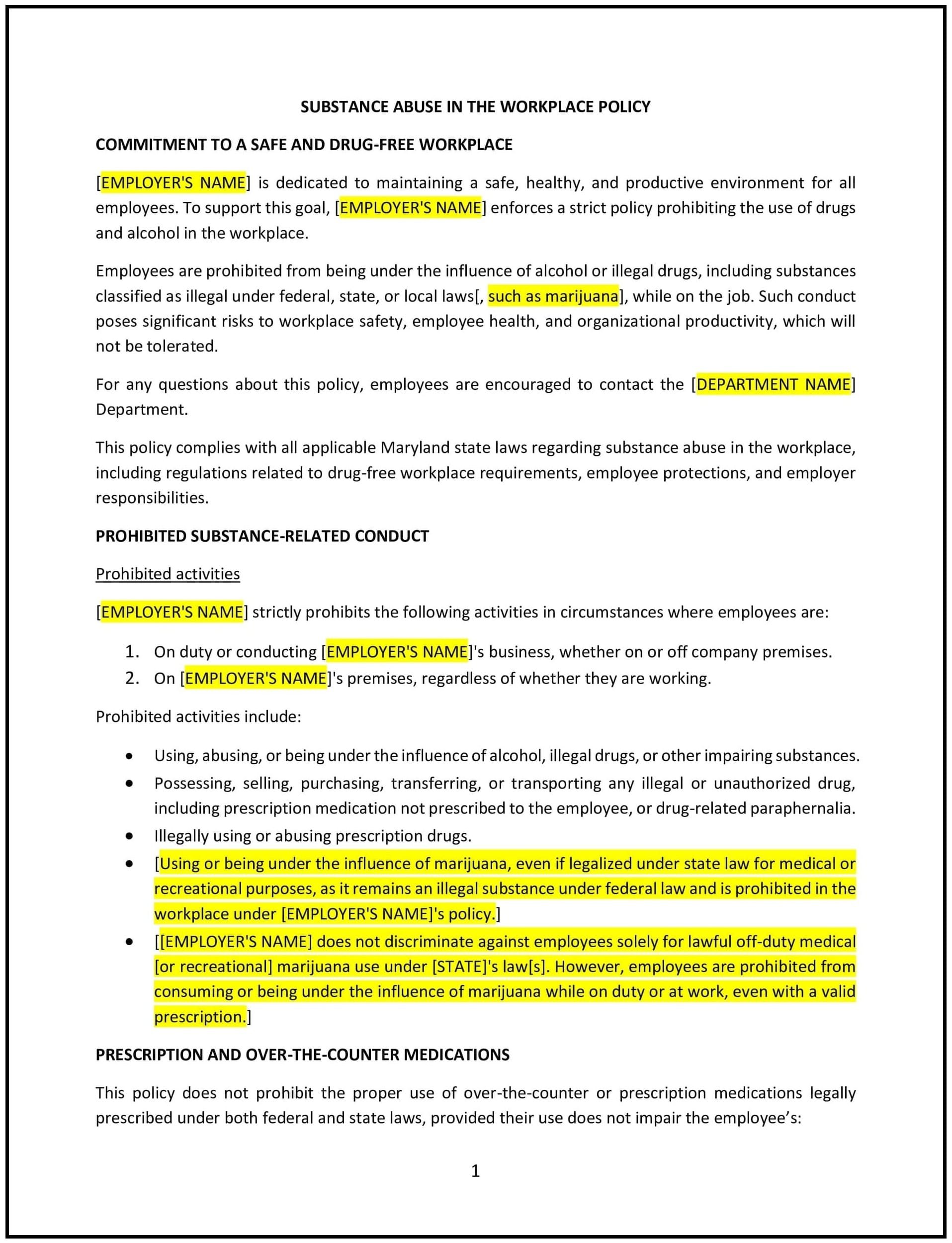Substance abuse in the workplace policy (Maryland): Free template
Got contracts to review? While you're here for policies, let Cobrief make contract review effortless—start your free review now.

Customize this template for free
Substance abuse in the workplace policy (Maryland)
This substance abuse in the workplace policy is designed to help Maryland businesses maintain a safe, productive, and healthy work environment by addressing substance abuse and its impact on employee performance and safety. It outlines the business's stance on drug and alcohol use, testing, and procedures for handling violations.
By adopting this policy, Maryland businesses can promote workplace safety, support employee well-being, and address substance abuse issues proactively.
How to use this substance abuse in the workplace policy (Maryland)
- Define prohibited substances: Specify which substances are prohibited in the workplace, including illegal drugs, alcohol, and misuse of prescription drugs or over-the-counter medications.
- Establish the scope of the policy: Clarify whether the policy applies to all employees, contractors, and visitors to the workplace, both on and off the job.
- Address the consequences of violation: Outline the disciplinary actions that may be taken if an employee is found to be under the influence or in violation of the policy, including counseling, suspension, or termination.
- Include drug and alcohol testing: Detail when and how employees may be tested for substance abuse, such as during pre-employment, random, post-incident, or reasonable suspicion testing.
- Provide support resources: Offer information on available employee assistance programs (EAPs) or counseling services for employees seeking help with substance abuse issues.
- Reflect Maryland-specific considerations: Ensure the policy aligns with Maryland state laws regarding substance abuse in the workplace, including employee privacy and testing regulations.
Benefits of using this substance abuse in the workplace policy (Maryland)
Implementing this policy provides Maryland businesses with several advantages:
- Promotes safety: Reduces the risk of accidents or injuries related to substance abuse, especially in safety-sensitive roles.
- Protects employee well-being: Offers support and resources to employees dealing with substance abuse problems.
- Maintains productivity: Addresses issues that could interfere with employee performance and job effectiveness.
- Encourages responsibility: Sets clear expectations for employees regarding acceptable behavior and the consequences of violations.
- Aligns with Maryland regulations: Helps businesses remain compliant with state-specific laws governing drug testing and employee rights.
Tips for using this substance abuse in the workplace policy (Maryland)
- Communicate clearly: Ensure all employees are aware of the policy and understand the consequences of violating it.
- Train managers: Equip supervisors with the skills to recognize signs of substance abuse and handle related issues appropriately and sensitively.
- Support rehabilitation: Encourage employees to seek help through employee assistance programs (EAPs) or other resources without fear of retaliation.
- Monitor testing procedures: Ensure that testing is conducted fairly and consistently, following all legal requirements to protect employee rights.
- Review regularly: Update the policy as needed to reflect changes in Maryland laws or evolving business practices.